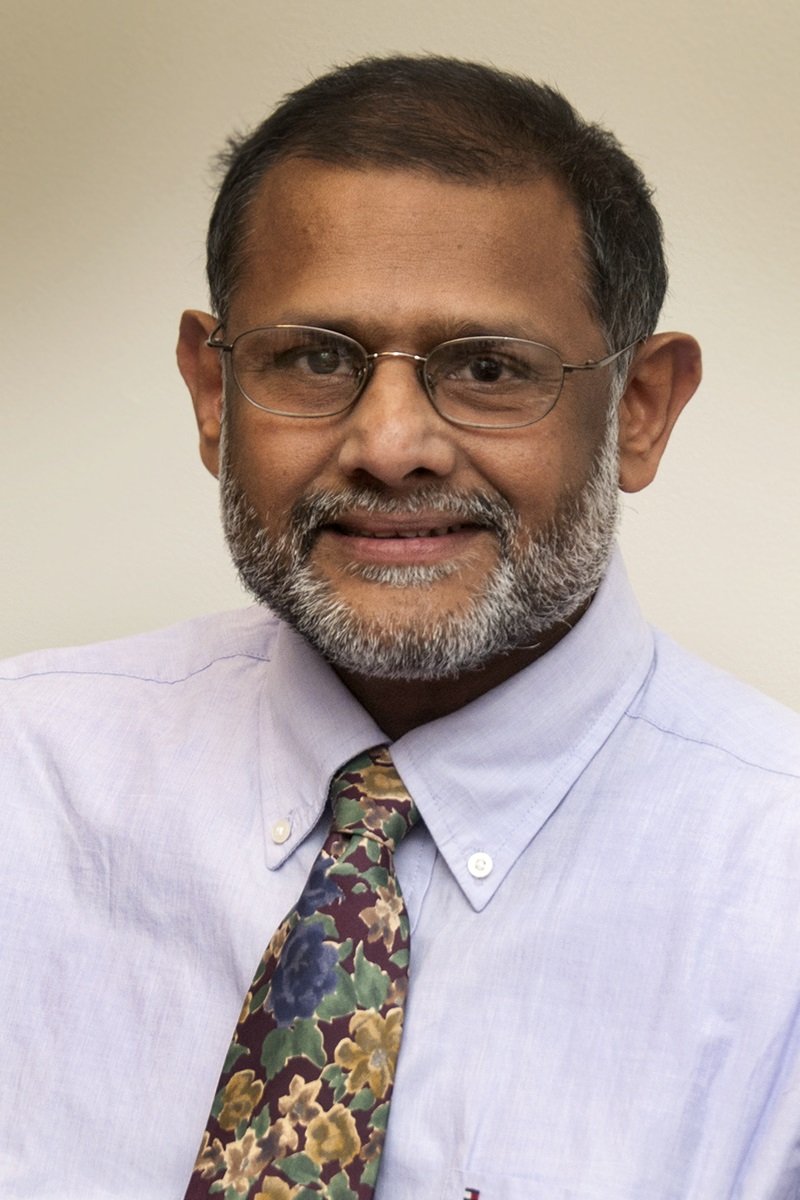Honors and Awards
2022 Charles E. Bowers Faculty Teaching Award
2021 IEEE Circuits and Systems Society John Choma Education Award
2020 Association for Computing Machinery (ACM) Fellow for contributions to architectures and design tools for signal processing and networking accelerators
2020 Fellow, National Academy of Inventors (NAI)
2019-2021 IEEE Circuits and Systems Society Distinguished Lecturer
2017 Fellow, American Association for Advancement of Science (AAAS)
2017 Mac Van Valkenburg Award from the IEEE Circuits and Systems Society
2013 Distinguished Alumnus Award, Indian Institute of Technology, Kharagpur
2013 Award for Outstanding Contributions to Postbaccalaureate, Graduate, and Professional Education, University of Minnesota
2012 Charles A. Desoer Technical Achievement Award from IEEE Circuits and Systems Society
2004 Frederick Emmons Terman Award from the American Society of Engineering Education
2003 IEEE Kiyo Tomiyasu Technical Field Award
2000 - present Distinguished McKnight University Professorship
1997- present Edgar F. Johnson Professorship at the University of Minnesota
1996 IEEE Fellow for contributions to the fields of VLSI digital signal processing architectures, design methodologies and tools
1996-1998 IEEE Circuits and Systems Society Distinguished Lecturer
1992-1997 National Science Foundation Young Investigator Award
1992-1994 McKnight - Land Grant Professorship at the Univ. of Minnesota
Books
K.K. Parhi, VLSI Digital Signal Processing Systems: Design and Implementation, Wiley, NY 1999
K.K. Parhi and T. Nishitani, Ed., Digital Signal processing for Multimedia Systems, CRC Press, Taylor & Francis Group, Florida, 1999
J.-G. Chung, and K.K. Parhi, Pipelined Lattice and Wave Digital Recursive Filters, Springer, 1996
N.R. Shanbhag, and K.K. Parhi, Pipelined Adaptive Digital Filters, Springer, 1994
R.I. Hartley, and K.K. Parhi, Digit-Serial Computation, Springer, 1995
T. Nishitani and K.K. Parhi, Ed., VLSI Signal Processing VIII, IEEE Press, 1995
J. Fortes, C. Mongenet, K. Parhi, and V. Taylor, Ed., Proceedings 1996 International Conference on Application Specific Systems, Architectures, and Processors, IEEE Computer Society Press, 1996
Selected Publications
Journals
2021 and in press
- B. Sen, and K.K. Parhi, "Graph-Theoretic Properties of Sub-Graph Entropy," IEEE Signal Processing Letters, 28, pp. 135-139, 2021 ( Supplementary Information)
- K.K. Parhi and N. K. Unnikrishnan, "Correction to "Brain-Inspired Computing: Models and Architectures"," IEEE Open Journal of Circuits and Systems, 2, pp. 291, Jan. 2021
- B. Sen and K.K. Parhi, "Predicting Biological Gender and Intelligence from fMRI via Dynamic Functional Connectivity," IEEE Transactions on Biomedical Engineering, 68(3), pp. 815-825, March 2021 ( Supplementary Information)
- K.K. Parhi, "Teaching Digital Signal Processing by Partial Flipping, Active Learning and Visualization: Keeping Students Engaged With Blended Teaching," IEEE Signal Processing Magazine, 38(3), pp. 20-29, May 2021 ( Supplementary Material)
- B. Sen, K.R. Cullen and K.K. Parhi, "Classification of Adolescent Major Depressive Disorder via Static and Dynamic Connectivity," IEEE Journal of Biomedical and Health Informatics (JBHI), ( Supplementary Information) ePub Dec. 2020
2020
- Z. Zhang and K.K. Parhi, "M3U: Minimum Mean Minimum Uncertainty Feature Selection For Multiclass Classification," Springer Journal of Signal Processing Systems (JSPS), 92(1), pp. 9-22, Jan. 2020
- B. Sen, G.A. Bernstein, B.A. Mueller, K.R. Cullen and K.K. Parhi, "Sub-Graph Entropy based Network Approaches for Classifying Adolescent Obsessive-Compulsive Disorder from Resting-State Functional MRI," Neuroimage: Clinical, 20, Article 102208, 2020 (Supplementary Information)
- C. Cheng and K.K. Parhi, "Fast 2D Convolution Algorithms for Convolutional Neural Networks," IEEE Transactions on Circuits and Systems, Part-I: Regular Papers, 67(5), pp. 1678-1691, May 2020
- X. Liu and K.K. Parhi, "Molecular and DNA Artificial Neural Networks via Fractional Coding," IEEE Transactions on Biomedical Circuits and Systems, 14(3), pp. 490-503, June 2020 (Supplementary Material)
- L. Ge and K.K. Parhi, "Classification using Hyperdimensional Computing: A Review," IEEE Circuits and Systems Magazine, 20(2), pp. 30-47, June 2020
- S.V.S. Avvaru, Z. Zeng and K.K. Parhi, "Homogeneous and Heterogeneous Feed-Forward XOR Physical Unclonable Functions," IEEE Transactions on Information Forensics and Security, 15, pp. 2485-2498, 2020
- K.K. Parhi and N. K. Unnikrishnan, "Brain-Inspired Computing: Models and Architectures," IEEE Open Journal of Circuits and Systems, 1, pp. 185-204, Nov. 2020
- R. Mukherjee, V. Govindan, S. Koteshwara, A. Das, K.K. Parhi, and R.S. Chakraborty, "Probabilistic Hardware Trojan Attacks on Multiple Layers of Reconfigurable Network Infrastructure," Springer Journal of Hardware and Systems Security (HASS), 4, pp. 343-360, Nov. 2020
- Q. Zhang, Y. Chen, S. Li, X. Zeng and K.K. Parhi, "A High-Performance Stochastic LDPC Decoder Architecture via Correlation Analysis," IEEE Transactions on Circuits and Systems, Part-I: Regular Papers, 67(12), pp. 5429-5442, Dec. 2020
2019
- K.K. Parhi and Y. Liu, "Computing Arithmetic Functions Using Stochastic Logic by Series Expansion," IEEE Transactions on Emerging Technologies in Computing (TETC), 7(1), pp. 44-59, March 2019
- S. Koteshwara, A. Das and K.K. Parhi, "Architecture Optimization and Performance Comparison of Nonce-Misuse Resistant Authenticated Encryption Algorithms," IEEE Transactions on VLSI Systems, 27(5), pp. 1053-1066, May 2019
- B. Sen, S.-H. Chu and K.K. Parhi, "Ranking Regions, Edges and Classifying Tasks in Functional Brain Graphs by Sub-Graph Entropy," Scientific Reports, Vol. 9, Article 7628, May 2019 ( Supplementary Information)
- K.K. Parhi and Z. Zhang, "Discriminative Ratio of Spectral Power and Relative Power Features Derived via Frequency-Domain Model Ratio (FDMR) with Application to Seizure Prediction," IEEE Transactions on Biomedical Circuits and Systems, 13(4), pp. 645-657, August 2019
- H. Bogunovic, F. Venhuizen, S. Klimscha, S. Apostolopoulos, A. Bab-Hadiashar, U. Bagci, M. Faisal Beg, L. Bekalo, Q. Chen, C. Ciller, K. Gopinath, A.K. Gostar, K. Jeon, Z. Ji, S.-H. Kang, D.D. Koozekanani, D. Lu, D. Morley, K.K. Parhi, H.-S. Park, A. Rashno, M. Sarunic, S. Shaikh, J. Sivaswamy, R. Tennakoon, S. Yadav, S. De Zanet, S.M. Waldstein, B.S. Gerendas, C. Klaver, C.I. Sanchez, U. Schmidt-Erfurth, "RETOUCH - The Retinal OCT Fluid Detection and Segmentation Benchmark and Challenge," IEEE Transactions on Medical Imaging, 38(8), pp. 1858-1874, August 2019
- Z. Zhang and K.K. Parhi, "MUSE: Minimum Uncertainty and Sample Elimination Based Binary Feature Selection," IEEE Transactions on Knowledge and Data Engineering (TKDE), 31(9), pp. 1750-1764, Sept. 2019
Google Scholar Page
